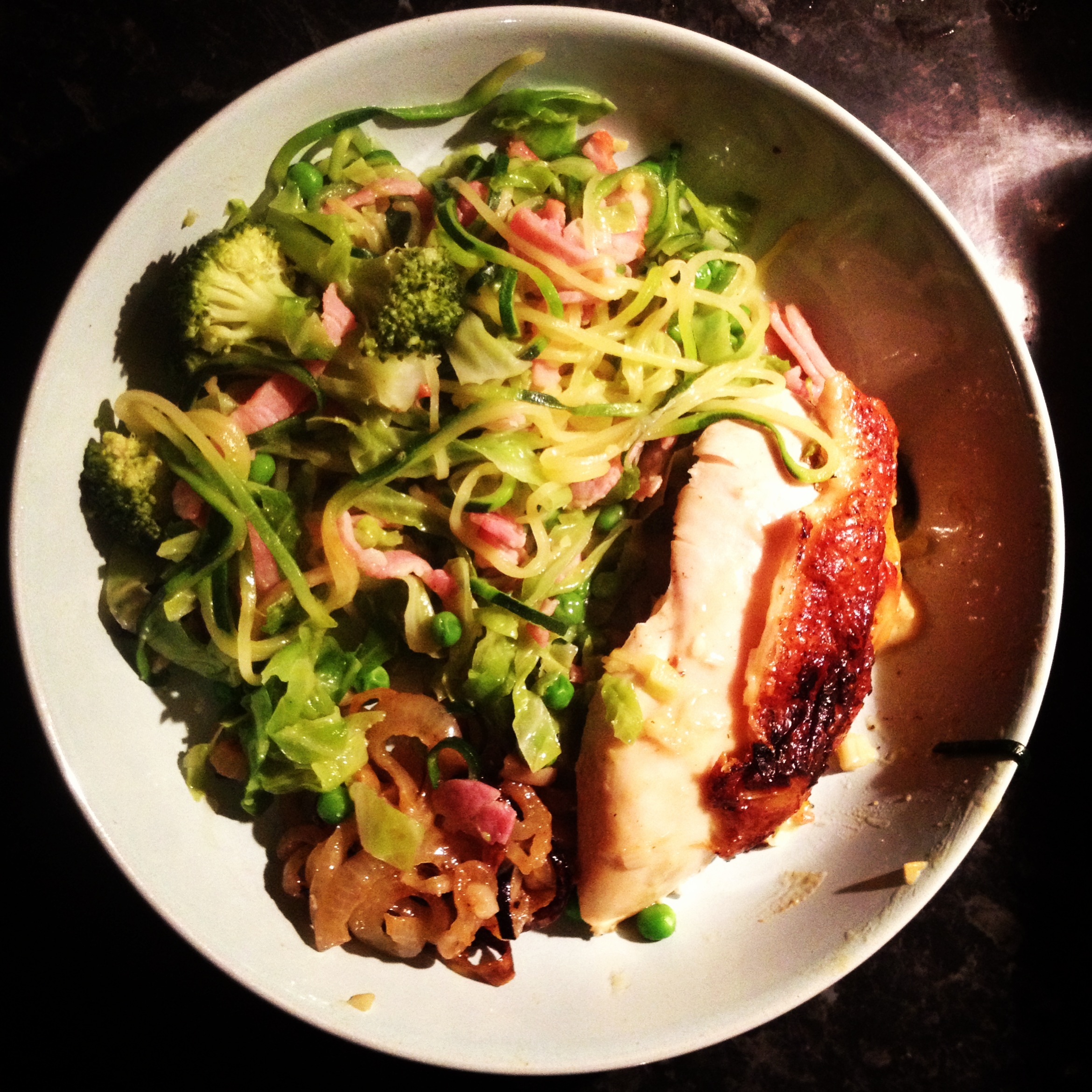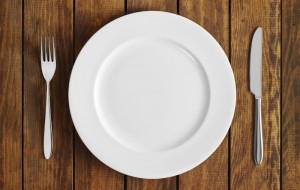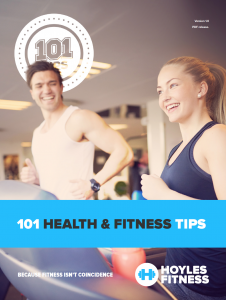Intermittent Fasting – Complete Guide
Intermittent Fasting: What, Why and How
Intermittent fasting has become popular again it seems. As with many of these things, the fitness world is ahead of the curve – Intermittent Fasting was first being spoken about in training circles around 2004 – perhaps earlier.
There have been a number of books on the subject, but a lot of research has recently been published on the life-extending and general health benefits of fasting and calorie restriction. It’s because of this that a lot of attention has been turned towards intermittent fasting again.
What is Intermittent Fasting?
Intermittent fasting is exactly as it says – periods of time where you don’t eat anything. The fasting period can be as long as you like, but typically followers of the approach will fast for around 16-18 hours per day and allow themselves to eat during a 6-8 hour window.
Proponents of the intermittent fasting approach say our bodies are designed to eat in this way as throughout human evolution, food wasn’t always a readily-available resource. This means we adapted to (and function best on) periods without food.
Whilst at one point this was an opinion only, a significant body of research is now supporting the theory.
Why Do People Follow Intermittent Fasting?
There are lots of reasons why people follow an intermittent fasting approach to eating – not all of them are to do with weight management either. Here are some of the more popular reasons why people intermittently fast….
Intermittent fasting is an effective way of reducing calorie intake
By restricting the time during which you eat food every day, you are automatically reducing how many calories you are able to consume.
Lets assume you only allow yourself to eat between the hours of 12 and 8pm. That means you are only able to consume calories during an 8 hour window. If you didn’t following an intermittent fasting protocol and were eating from 7am-10pm, thats a 15 hour window where you could consume calories.
It’s not an exact science – if you were to eat very low calorie meals during a 15 hour eating window or high calorie meals for the 8 hour eating window, the effects would largely be the same. With this in mind you must remember that even when fasting, of course you can overeat.
Hopefully you understand the point though – if you eat ‘normally’ during your eating window, the fast takes care of the necessary calorie reduction you need to ensure in order to lose weight.
Intermittent fasting is a good way to change eating behaviours
In many ways, losing weight is an exercise in behaviour change. I personally find that fasting brings me back in tune with what hunger feels like – in the modern world hunger isn’t something we feel all that often.
What we feel is a temporary version of hunger – one that is fleeting.
When you practice intermittent fasting for a while, you’ll learn that hunger (to a point) is transient – it comes and goes and what you experience as hunger often really isn’t.
Knowing this about hunger is actually a bit of game changer because the hunger-induced anxiety that some people experience will go away, mostly because you know that the acute feeling of hunger is a very temporary feeling and normal service will quickly resume.
Intermittent fasting is also a perfect tool for strengthening self-discipline.
If you know that your eating window starts at 12pm, for example, food doesn’t become an active consideration until then. That means you are forced to improve your self-discipline because according to your own rules eating is not an option until 12.
It’s the same when it comes to stopping eating. If your cut-off point is 8, you practice self-mastery by stopping eating then. People rarely have trouble starting eating – it’s the stopping part that we need help with!
Intermittent Fasting has been linked to a whole host of health and fitness benefits….
I’ve taken this list from an excellent eBook by Precision Nutrition on different Intermittent Fasting protocols, their efficacy and the anecdotal experiences of the authors.
A snapshot of the benefits of Intermittent Fasting…
Reduced…
- blood lipids (including decreased triglycerides and LDL cholesterol)
- blood pressure (perhaps through changes in sympathetic/parasympathetic activity)
- markers of inflammation (including CRP<, IL-6, TNF, BDNF, and more)
- oxidative stress (using markers of protein, lipid, and DNA damage)
- risk of cancer (through a host of proposed mechanisms; we’ll save them for another review)
Increased…
- cellular turnover and repair (called autophagocytosis)
- fat burning (increase in fatty acid oxidation later in the fast)
- growth hormone release later in the fast (hormonally mediated)
- metabolic rate later in the fast (stimulated by epinephrine and norepinephrine release)
Improved…
- appetite control (perhaps through changes in PPY and ghrelin)
- blood sugar control (by lowering blood glucose and increasing insulin sensitivity)
- cardiovascular function (by offering protection against ischemic injury to the heart)
- effectiveness of chemotherapy (by allowing for higher doses more frequently)
- neurogenesis and neuronal plasticity (by offering protection against neurotoxins)
Looking at those benefits, the biggest question surely is “if Intermittent Fasting is so good, why isn’t everyone doing it?”
It’s a fair question, so let’s address it in the next section…
Why isn’t everyone Intermittent Fasting?
There are a number of reasons why Intermittent Fasting doesn’t work for everyone (in particular some women, down to hormonal reasons). It’s a protocol that requires discipline – something that many people lack. That’s not all though – for lifestyle reasons, medical reasons and circumstantial reasons, it may not work for all.
If you suffer from medical issues that require particularly careful monitoring of blood sugar levels, such as diabetes, Intermittent Fasting may not work for you. It’d certainly be very unwise for you to follow an Intermittent Fasting protocol without discussing it with your doctor first.
Perhaps you work shifts – in that case your meal times may be mixed, which would provide you with difficulties when it comes to establishing routines. You could make it work, but it may be slightly more difficult for you.
We also have different food requirements. I can personally skip breakfast every single day if needs be – I rarely wake up hungry. Other people I know are almost shaking in the morning because they wake up absolutely ravenous.
Intermittent fasting in the case of someone who wakes up hungrier than an elephant may be difficult, because they’d probably wake up even hungrier than normal if they hadn’t eaten for 16-18 hours rather than just 8 overnight. These are considerations you need to take into account before jumping into Intermittent Fasting with both feet.
Finally, the point I mentioned at the top – discipline. Going for longer than usual periods of time without eating requires a higher level of discipline than normal. If the idea of not eating for a few hours terrifies you, perhaps consider the reality of it before you embark on an Intermittent Fasting experiment.
What Intermittent Fasting Isn’t…
So far I’m aware that this has been a bit of an Intermittent Fasting love-in, which perhaps skews your view on my opinion of it as a nutrition approach. I think used correctly, it’s fantastic. Used by the wrong person in the wrong way, it can be a total waste of time and a very difficult way to drop body fat.
Here’s a few thoughts on what Intermittent Fasting ISN’T…
Intermittent Fasting isn’t a magic bullet for rapid fat loss…
Just skipping a meal or two isn’t enough to lose a load of fat if when you come to eat, you hammer down 3000 calories in a sitting. Remember, when it comes to fat loss, you have to create a calorie deficit. Whether you overeat across 5 meals or 1, it doesn’t matter. Calories are calories.
Intermittent Fasting isn’t easy…
In certain situations, being the only one not eating can be really tough. If you’re surrounded by people eating great-smelling food and you can’t have any, it can be tough. It takes a lot of self-discipline to say no to food, especially if you are pretty hungry. Unless you are stubborn enough to say no (and mean it), intermittent fasting isn’t easy!
Therefore an intermittent fasting tracker could be a nice add up. A fasting app can help you keep track of your fasting and eating windows, making it easier to stick to your chosen intermittent fasting schedule. It can also remind you when it’s time to start and end your fast, taking the guesswork out of the process. Many fasting apps allow you to log your water and calorie intake, which can help you stay hydrated and make sure you’re getting the appropriate amount of calories during your eating windows. This can be especially helpful for beginners who are still figuring out how to balance their food intake with their fasting periods.
Intermittent Fasting isn’t a fixed approach…
Eh? What do you mean it isn’t fixed?
What I mean is that there’s no ‘set’ way to fast. Some people prefer an ‘eating window’ of 6 hours, others will eat normally for 3 days, fast for 24 hours and repeat, others will just skip breakfast. You’ll need to experiment to find what works for you.
What to expect when you do Intermittent Fasting
If you go into intermittent fasting without any prior knowledge or experience, it can be quite odd as your body and day to day life goes through changes that you may not have expected!
Here’s a few changes you may experience in the early days of your fasting. Don’t worry – they’re totally normal!
Hunger in the early stages…
At first, expect to feel hungry. If your body is used to be being fed regularly, going for a few hours without food will be a bit of a stretch for it. A good way to get around this is to make sure your final meal before your fast is very protein-heavy, as it takes longer to digest.
Need to go to the toilet more…
When you fast, you may experience a need to pee more. The explanation for this is that as your body burns through glycogen stores, you also excrete the extra water that is stored with it. In the early stages this accounts for a significant amount of the weight you lose!
More time on your hands…
Food can take a long time – whether it’s making a decision on what to eat, cooking the food or even heading to the shop, it’s a time-cost that you often don’t appreciate. By removing one or two meals per day, you’ll have a lot more time on your hands to get things done!
An understanding of your body…
In a lot of cases (certainly mine), eating behaviours aren’t triggered by hunger, instead they’re triggered by habit. In fact, I don’t think many of us truly appreciate what hunger really is. What we feel is a temporary hunger pang that we immediately satiate with a meal, so we never experience a true hunger.
If we let this ‘hunger’ run its course for a few minutes, we’d realise that it’s a very temporary thing and that hunger comes and goes. Of course in situations where we haven’t eaten for a long time then it’ll be genuine, but if you’d eaten within 1-2 hours of your ‘hunger’, it’s overwhelmingly likely to be a temporary thing.
Why Intermittent Fasting can be fantastic
In my opinion, intermittent fasting is a great weight loss tool because it helps affect behaviours in ways that other dietary approaches don’t. If you struggle with food and regulating portions etc, intermittent fasting may be the solution for you.
Intermittent Fasting is absolute…
You’re either eating, or you’re not. It’s that black and white. You don’t necessarily have to analyse food intake to a huge degree. For someone like myself, this is perfect. I have very little ability to control portions or food intake, so the absolute nature of fasting works for me.
Intermittent Fasting requires very little thought…
Any diet that creates a calorie deficit will be successful to a degree. If you follow an approach that allows more food, then you have to be much more careful when it comes to monitoring calorie intake. With intermittent fasting, you can eat ‘normally’ when eating, as long as you are strictly not eating during your fast. The fast itself takes care of the reduction in calorie consumption.
Intermittent Fasting, Final Thoughts
Over the years I’ve used intermittent fasting with personal training clients – very successfully too. It’s an approach that almost anyone can get their head around and one that I think works particularly well with people who have various food anxieties.
It’s not right for everyone though and I think you should give it some serious thought before you give it a go.
If you decide to try intermittent fasting, start simply. Keep the fasting window short – maybe start by skipping lunch only, so you are still experiencing eating twice per day. If that works and you lose weight, stick with it!
If you think you could push the fast for longer, maybe miss breakfast instead of lunch, meaning you’d have an overnight and half-day fast.
Keep a track of how you are feeling – how mentally alert you are, how tired you do/don’t feel, how your body feels, how your mood is, how hungry you are etc. If you can write these things down, even better. You’ll have an ongoing record of how you feel.
It’s easy to assume these things are hard to follow, but honestly, they’re not. There may be a period of adjustment, but once that has happened then you’ll be off to the races and will notice the weight dropping within a few days.
Further reading on the subject can be done here.
If you need any help whatsoever with your intermittent fasting journey, get in touch and I’ll help you the whole way!
By the way, if you subscribe to the Hoyles Fitness mailing list you’ll receive a free eBook containing 101 Health and Fitness Tips, plus offers and news exclusive to Hoyles Fitness subscribers. Click the image below to download…




